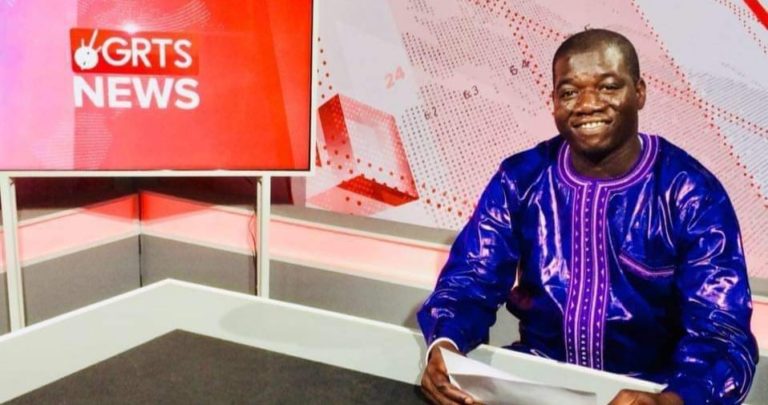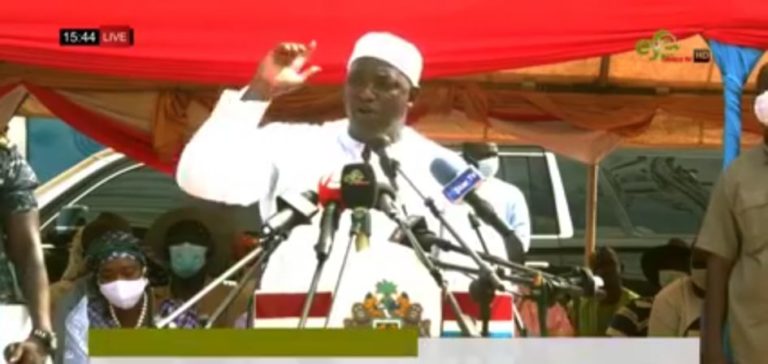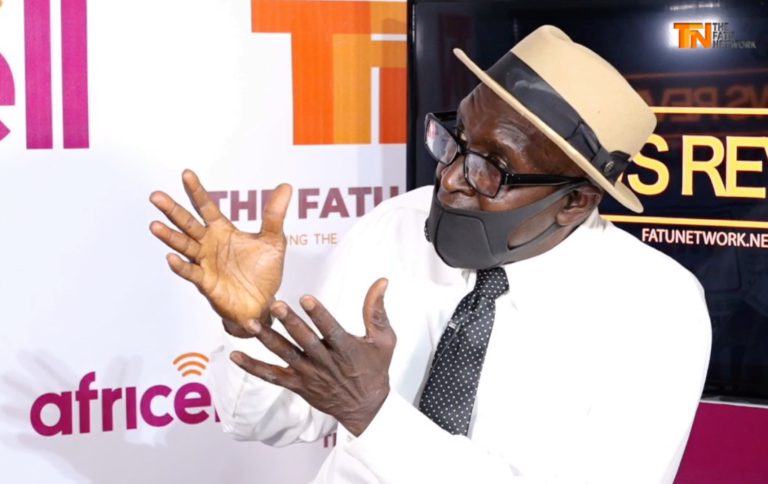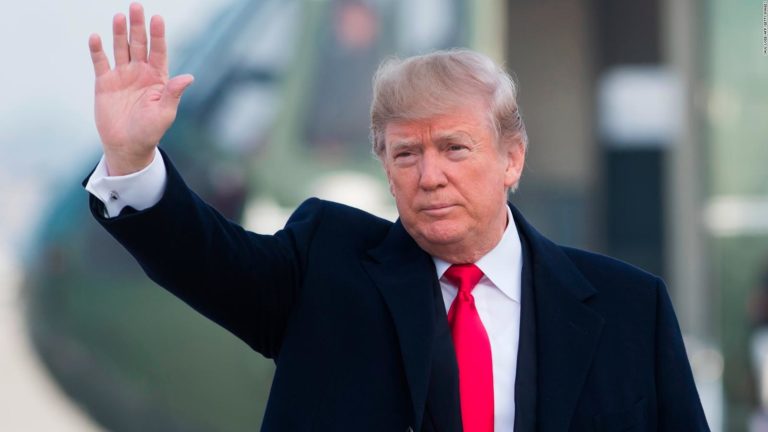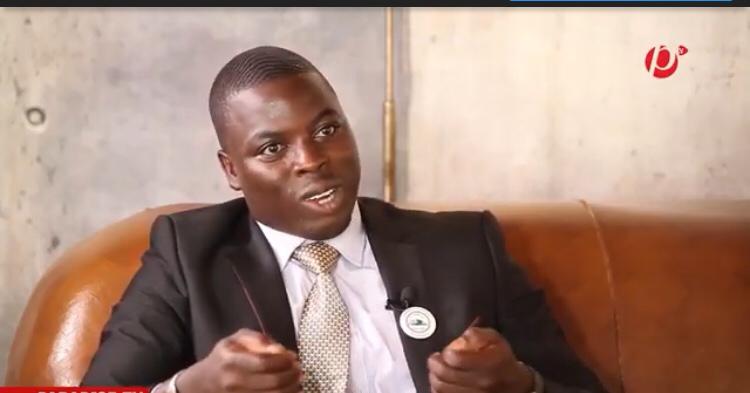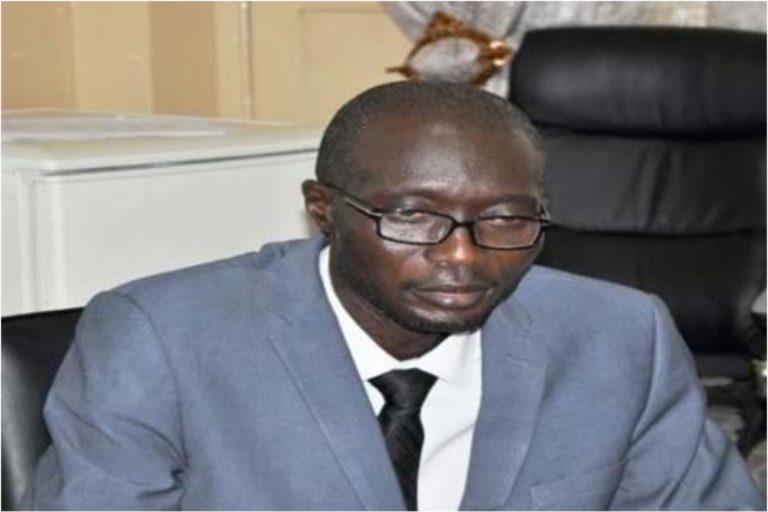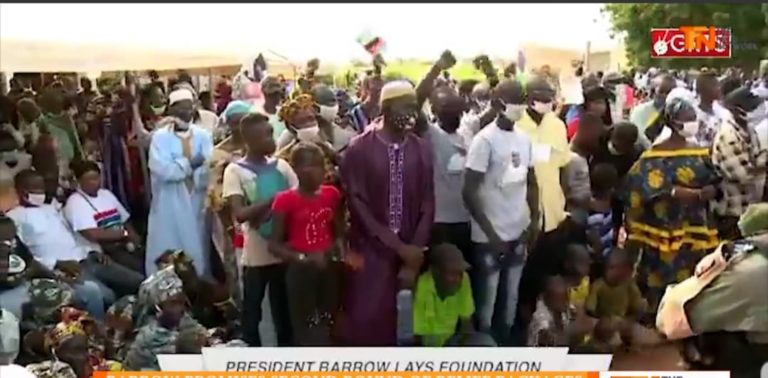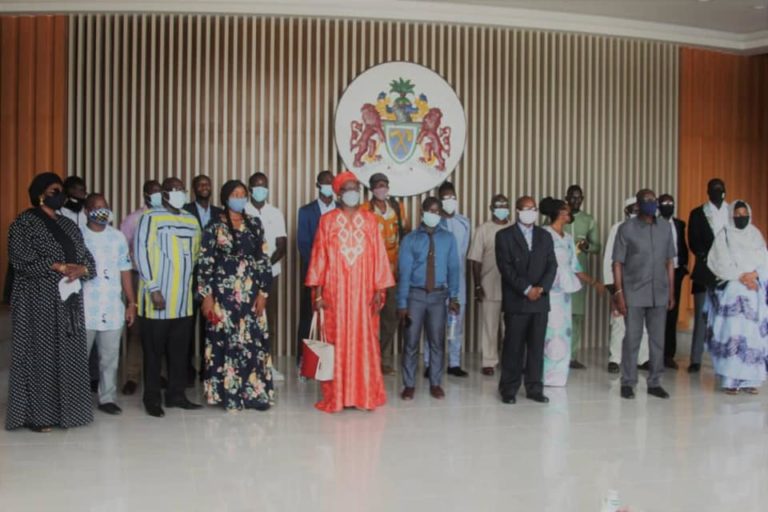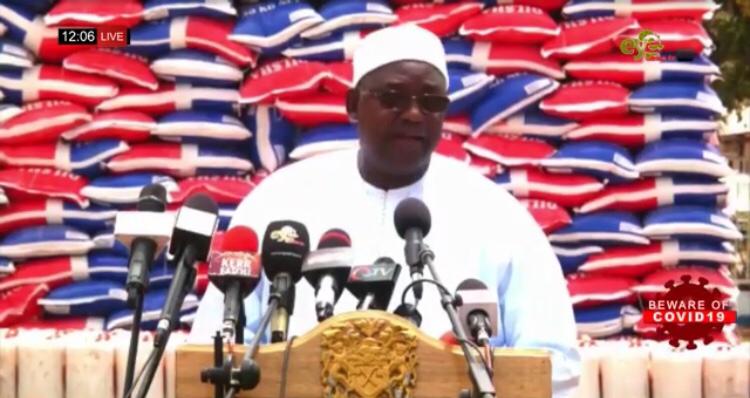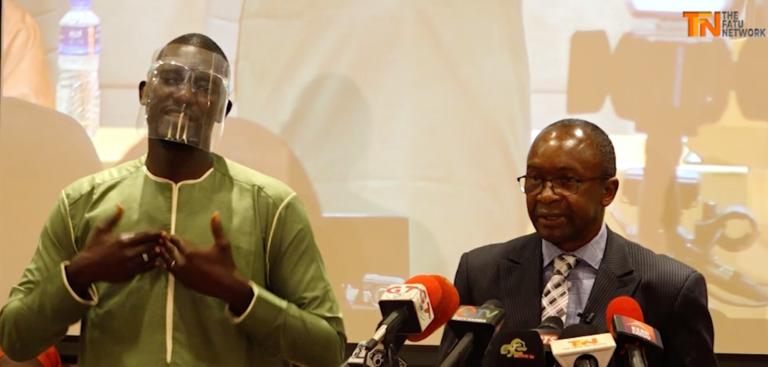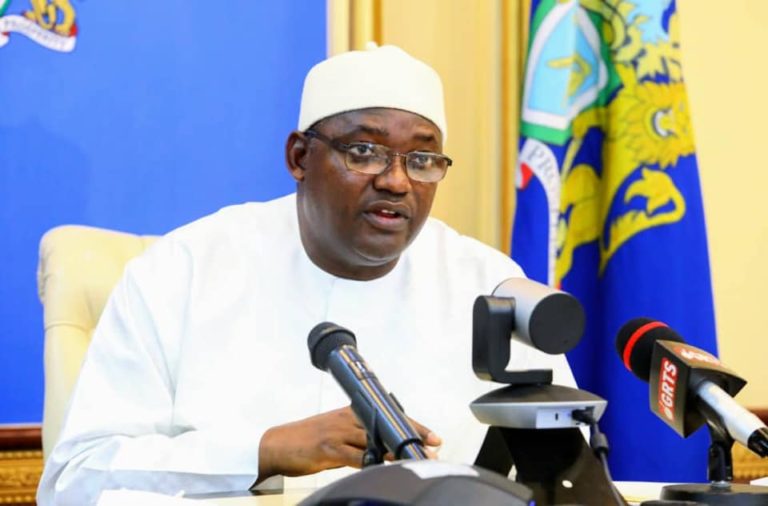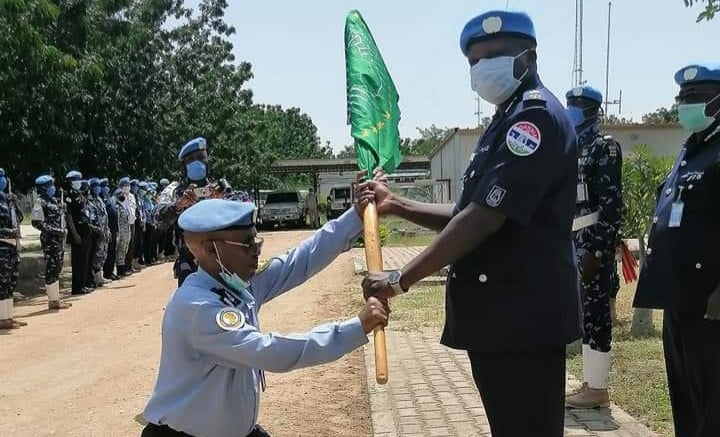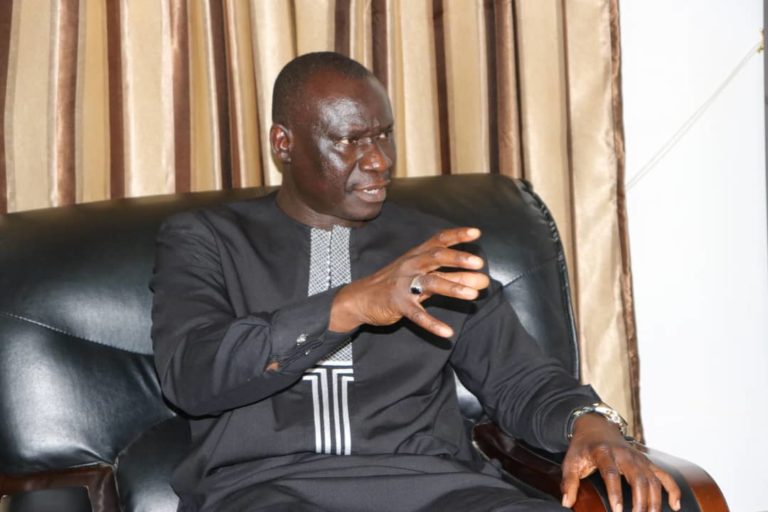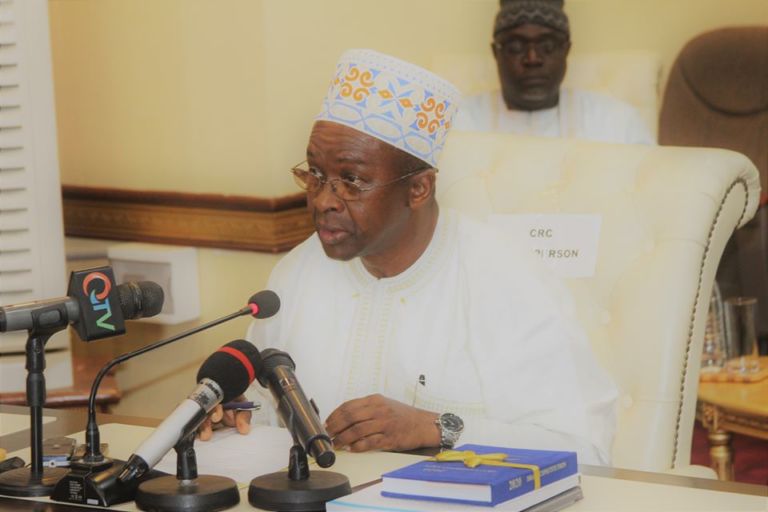By Samsudeen Sarr
In my marathon interview with The Fatu Network a few weeks ago, the host Lamin Njie bombarded me with so many “got you” question that at some point I had to query his unfairness towards me that he nonetheless disputed. For instance even after discrediting the conventional wisdom that I deliberately shot myself in 1990 to avoid being deployed with ECOMOG to Liberia by dispelling the misinformation that it was instead an accident that happened in 1988, well before the commencement of the Liberian civil war he still remained inflexible to prove me a coward who was just scared of going abroad to fight a war. I then illustrated the illegality of the whole mission when it was later realized that the Gambia government orders to send national troops to a combat zone for the first time was discreetly imbedded with instructions to deny those killed-in-action their human and national rights to have their remains evacuated for burial in the Gambia. Discreet in the sense that the officers and other ranks were not aware of the monstrous instruction until two of them were killed in a barrage of artillery shells from enemy forces few days after landing in Monrovia. I made it known to Mr. Njie that the orders were illegal that should never have been obeyed by any well-trained commander, an incident I strongly opposed but distorted by low IQ officers as cowardly. No wonder, the hypocrites who tried to politicize the whole illegal operation ended up being consumed by their own naivety, a traumatic experience that ultimately triggered the 1994 coup. Anyway I don’t think any of my pointers had any impact on what Mr. Njie had already concluded about me.
The other “got you” question was strangely about Coup D’tat By the Gambia National Army, my memoire published in the USA in 2006 by Xlibris Publishing House but widely criticized by loathsome Gambians the majority or all of whom never even read the book. Amazingly, Mr. Lamin Njie was one of them; he never read the book but wanted to prove me insensitive on what he was fed about the author. That’s not all, but this is about Dr. Sidat Jobe and not that regrettable interview.
Comparatively, Dr. Sidat Jobe on the spot light, “the distinguished career diplomat” appeared to have been treated with different set of standards, leaving me the impression that not all “two leg” are interviewed with the same benchmarks. My status as former Commander of the Gambia National Army and UN diplomat never mattered.
Dr. Sidat Jobe’s assertions left a striking resemblance to that of foreign minister Dr. Mamadou Tangara’s in that during the latter’s recent interview with the Kerr Fatou Network his most worthwhile accomplishments as a diplomat basically happened while working for the APRC government headed by former President Yahya Jammeh. Yet, the two men now brand Jammeh and his government tyrannical for 22 years.
When President Jammeh appointed Dr. Sidat Jobe as foreign minister in 1998, I was at the time the GNA Commander. That same year we went to Bissau together to broker peace during the civil war between the forces of President Nino Vieira and General Ansumana Mane with Senegalese troops intervening on behalf of the former while the latter commanded the loyalty of the majority of troops in the Guinea Bissau Armed Forces. Without doubt Dr. Jobe’s negotiating skills were superb and had had tremendous effect in securing the ceasefire that subsequently resulted is a temporary compromise between the belligerents. It was temporary success because few months later, in May 1999, everything achieved crumbled in an unexpected coup d’tat by Mane’s forces against Nino’s.
Hence, Doctor Jobe just like Dr. Tangara, accentuated his best accomplishments as Jammeh’s foreign minister specifying on how exceptional the Gambia performed when selected as temporary member to the UN Security Council by settling problematic international crisis that few experts thought our nation could, underestimating our size and capabilities. That at some points a Libyan and Kuwaiti crisis of global concern were successfully settled culminating in Colonel Gaddafi providing us bountiful financial and material assistance while the Kuwaitis in a reciprocal show of generosity gave us a grant of $46 million. According to the doctor, the Gambia was so important that as President of the UN Security Council he couldn’t keep up with several prominent heads of state and foreign ministers constantly inviting him for dinner to seek Gambia’s endorsement.
I could vividly remember the buzz word when Dr. Jobe was just hired by Jammeh, that he had just completed a successful career at the UN and had decided to render his loyal service to the progressive APRC government; but in the interview, Mr. Lamin Njie failed to asked him the “got you” question of why or what his achievement were as UN employee which they never discussed at all. There may be none after all.
So fairly put, Dr. Jobe’s three years ministerial achievements under Jammeh-1998 to 2001-was far more productive in his diplomatic career than anything he had ever done as a career diplomat at the UN; and after falling apart with the APRC government he seemed to have attained nothing of substance until his appointment in 2017 by the Gambia coalition government as ambassador to France. There again, up to the time he was dismissed he didn’t appear to have attained anything of significance. He talked about pledges of France to the tune of 50 million Euros that he orchestrated but was ejected before the disbursement of the funds.
We all know what Western pledges mean. After the 2010 horrifying earthquake in Haiti that killed over 200,000 people and injured 300,000 more, bilateral, multilateral and private donors pledged over $13 billions to help them of which it was reported that 50% was eventually disbursed but its controversial expenditure has still not been properly accounted for.
He just couldn’t admit it but I don’t think the doctor achieved anything extraordinary as Gambia’s ambassador to France.
I therefore think he should have been a bit humble with the APRC government and refrain from calling it 22 years of tyrannical rule.
Like I said, the “got you” question that host Lamin Njie failed to ask him there was how a top-UN-diplomat just retired after years of serving the world body, could have disregarded everything deemed undesirable about a government by coup d’tat and accepted a job from the perpetrators. Or where was he when the UDP he proudly identify with was formed in1996 or the PDOIS party that on principle from day one stood against the policies of the government unless and until there was total system and regime change? Indeed Dr. Jobe like many educated Gambian opportunists couldn’t see anything wrong with the government of the tyrant from 1994 to 2001 until he could no longer keep up in the survival game. Most Gambians including me who rightfully served under Jammeh without regret are constantly demonized for their choice; but I guess there are the exceptions.
What did he think he knew better than Lawyer Ousainou Darbo and Halifa Sallah in those 7 years he embraced the AFPRC/APRC government of “tyrant” Yahya Jammeh? He would have sounded more reasonable calling the APRC reign 15-years of tyranny, subtracting the seven years he happily fraternized with them than the 22 years he disdainfully calls them now. Lamin again spared him the “got you” question there.
On the draft constitution, the central topic of the interview, Doctor Jobe reiterated the same misconception that the expectation of the whole country was betrayed by the downvoting at the National Assembly. It had never been about the whole country and will never be so when it comes to different stakeholders scrambling for political advantage over each other, as the situation in the country has been since the removal of the APRC government.
Upon the immediate submission of the draft constitution to the executive, word started filtering out of Statehouse that the president and most the loyal members in his cabinet were not thrilled about its enactment because of its adversity to his prospect of remaining in office long enough. The opposition didn’t make much noise about that open secret and were perhaps banking on the National Assembly to do what they wanted until it became apparent that they were unlikely to do so. That must have prompted Lawyer Darbo, the UDP leader to make that passionate appeal to government and lawmakers to ensure its promulgation while Lawyer Mai Fatty the GDC leader thought crying could help his despondency.
I also suspect a behind-the scenes-concerted lobby for the intervention of the donor partners through the EU representative Mr. Attila Lajos whom otherwise may have remained indifferent.
Based on my deductions, everything about the so-called-intervening-EU team feebly spearheaded Mr. Lajos indicates a mere payment of lip-service to the stalemate. A serious intervention would not have left the critical players out and would have been accompanied by clearly stated consequences. Can you all remember the 2016 ultimatum of “respect the constitution of the Gambia and the will of the people or we invade the country”? No strict condition as such was laid by the “EU”.
In an interview with Esso Williams of the BBC, Attila Lajos identified passive Britain, the USA, Germany and obviously the EU as the donor partners voicing concern to see the passage of the bill. France who have been most instrumental in funding the “reform process” since 2017 was not part of them.
I also have not heard anything from Senegal, the AU and ECOWAS who all played and are still playing critical roles in our transition.
When Mr. Esso Willians further asked Attila to confirm whether President Barrow rejected their application to meet him directly, a serious rejection that should normally annoy any diplomat, the man exploded into a hearty laughter before confirming the speculation. He didn’t in any way sound upset by the executive decision. Asked whether it will affect their ongoing financial support to the government that Dr. Sidat Jobe told Lamin Njie is bound to happen, Attila dismissed the option and sounded rather optimistic about resolving the matter in a better way. Hello!
For lack of a better metaphor I think Dr. Jobe was comparing apples with oranges, when he confidently advanced the possibility of a sanction by the EU to the Barrow government evocative of what America has recently imposed on Iran. Really Doctor Jobe? Totally different realities! What happened in Iran has nothing to do with the government flouting any national or international accord, which the doctor thinks Barrow is now doing in the Gambia and probably based on President Donald Trump’s excuse of pandering to Prime Minister Netanyahu of Israel an archenemy of the Islamic state, by undermining a reliable international verification mechanism of Iran’s nuclear program, brokered by the whole world including the Obama government. Up to this day other stakeholders like the Europeans, Chinese and Russians are not in agreement with the Trump-orchestrated sanctions that will definitely be reversed if he loses the November elections. The “distinguish” career diplomat cannot tell us that he was not closely monitoring those developments. Or was that merely about “open-calling” Barrow?
Mark my word Dr. Sidat Jobe, Barrow must have consulted the important forces relevant to the survival of his government before adopting his hawkish position, especially France, bearing the leadership role since. Barrow has been their Barrow since the UDP lost him a year ago.
To seek another chance of applying his “outstanding” diplomatic skills, I will suggest that the doctor explores the option of once again shifting his loyalty from the UDP to the NPP; otherwise, I don’t see any silver lining in the dark clouds anytime soon.
I keep on saying that with the global destruction from the coronavirus pandemic, not sparing the Gambia in anyway, we should also brace up for the possibility of conditions deteriorating so badly that funds from donors to conduct an election next year will not be forthcoming.
If it comes to that we will have no choice but to adapt. Already, Barrow has disclosed in his last speech that among other failures, several major development plans of his government in 2019 for 2020 were derailed by the pandemic.
In fact, with due respect, I totally disagree with Dr. Sidat Jobe that the new constitution is a perfect document with minor contentious issues, correctable at the national assembly and released for immediate referendum. It cannot be that simple. I have heard numerous complains about serious flaws in the document excluding mine that follows:
The dual citizenship clause forbidding us from participating fully in the political process coupled with the disenfranchisement of the Gambians in the diaspora are bad enough to discard it altogether. Plus the silence over our American and European kins yearning to resettle back to their ancestral African homes after centuries of the bondage of slavery is deafeningly unconscionable. These people should be given a special privilege of naturalizing in African nations which Ghana has been doing successfully. I don’t think there was ever a better time to encourage these migrants to Africa than now when the world is beginning to recognize the unfair treatment they had been enduring for too long and need genuine homeland they could be proud of.
In the end, I think the doctor needs to know that the whole thing is about what he has been trying to condemn, self interest, individualism or collectivism, a difficult, if not impossible forgo in politics. Once again the mantra says, it’s not about permanent friends or permanent enemies but permanent interest.
Thanks for reading!
SAMSUDEEN SARR
BANJUL, THE GAMBIA

